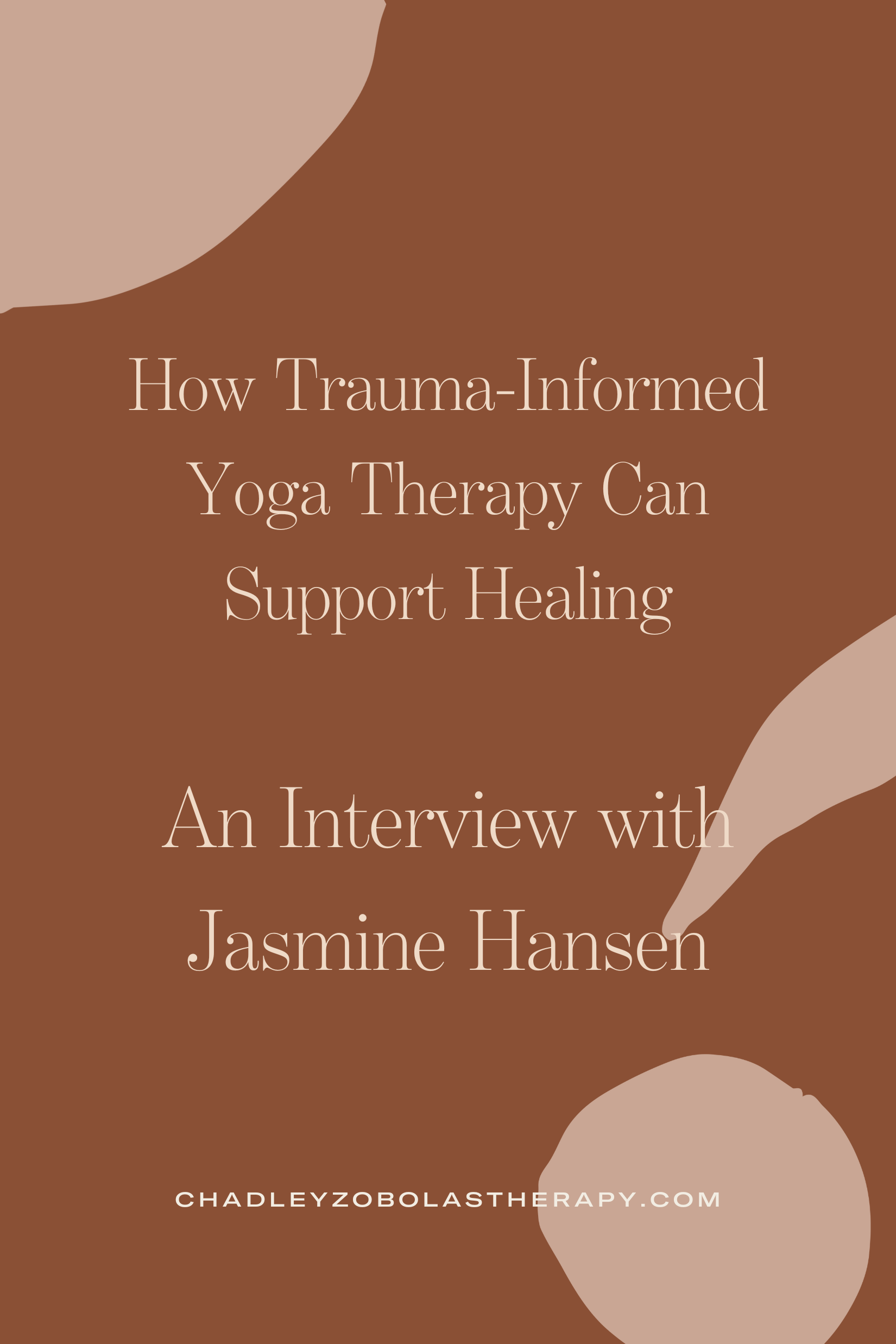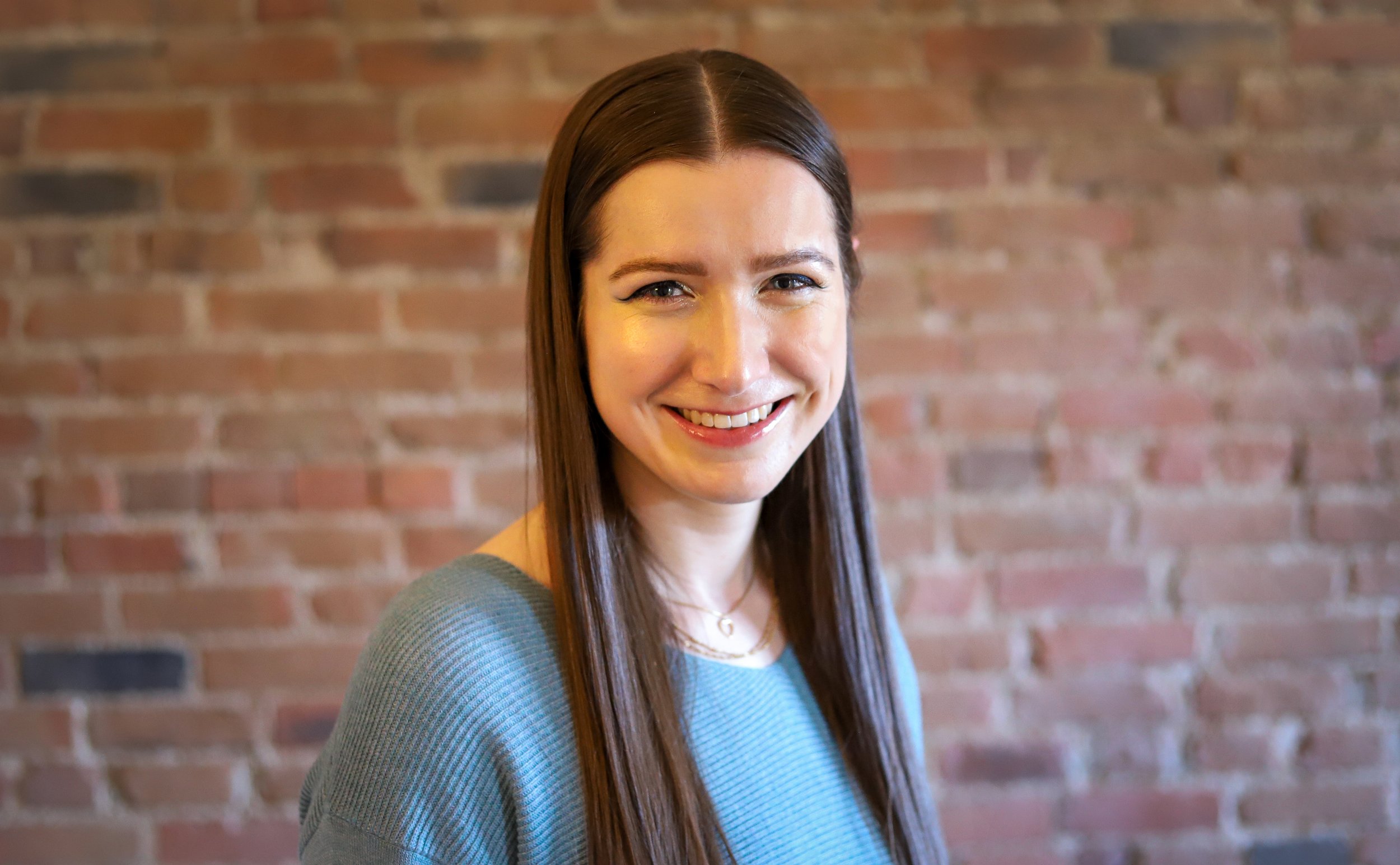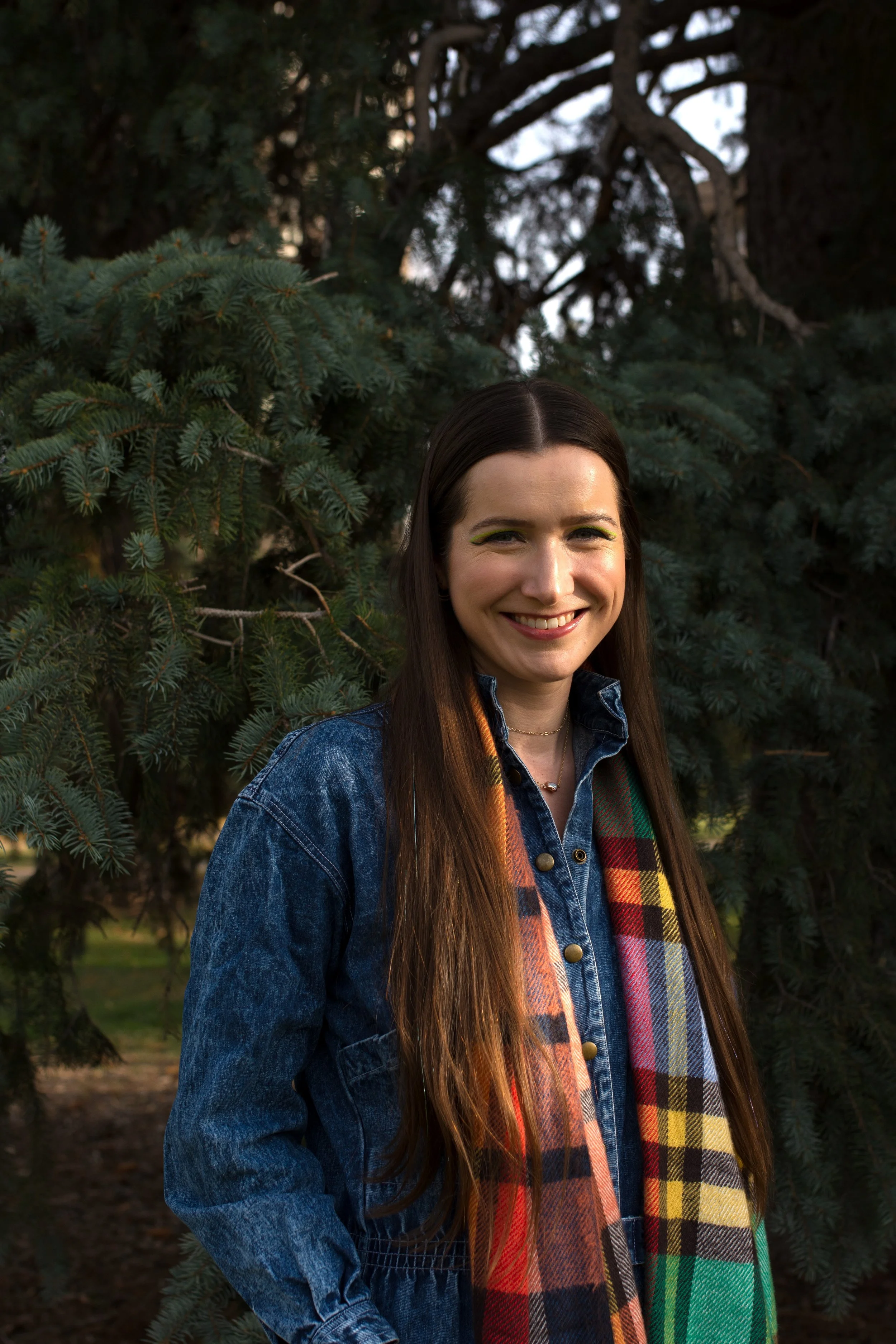How Trauma-Informed Yoga Therapy Can Support Healing: An Interview with Jasmine Hansen
Interview with Jasmine Hansen (she/they), conducted by Kile Atwater (they/them), an LGBTQ+ mental health advocate at CZ Therapy Group
Meet Jasmine Hansen (she/they), Denver Trauma Therapist and Yoga Teacher
What exactly is Trauma-informed Yoga Therapy? In this interview, we will take a dive deep into this and learn more about Jasmine Hansen (she/they), a gender-fluid trauma and relationship therapist dedicated to celebrating, affirming, and supporting the 2SLGBTQ+ community in her work.
Jasmine's journey is rooted in their own profound experiences. Having emerged from a background in the military, their story is one of resilience and self-discovery – from navigating the challenges of being a Queer individual in a cisgender, Christian-dominated military setting to finding solace in a Yoga practice that goes beyond physicality and harmful fitness culture. Through deep introspection, conscious breathing, and connection with their own body, Jasmine found a gateway to trauma healing that they would love to share with you!
Her evolution from skeptic to advocate is inspiring, fueled by spiritual teachings that resonate on a profound level. Let's dive in below to gain more insight into the groundbreaking trauma-informed Yoga therapy group they facilitate and to learn more about them.
What drew you to Yoga in the first place, and when did you realize it could be a powerful way to heal from trauma?
After years of pushing my body to the max with endurance sports and in the military, I was introduced to Yoga. This was during my time in the military as studios became popularized where I was stationed. I attended a few classes with the hope of supporting my physical health as I was struggling with ongoing injuries, and I also went to classes because I was profoundly alone in my life as an agnostic, Queer, and female-assigned person in the male, cisgender, and Christian-dominated military community.
The room was overwhelmingly hot, and the teachers praised and encouraged pushing your body into complex postures and “burning off food” in front of a large mirror. I felt out of place as those around me were so quiet, wearing matching, expensive, and tight clothing. I was sweating profusely, trying to hide my heavy breathing, and sliding all over on my mat. I felt like I did not belong. I kept going because I did not know where else to go and always felt like an outsider.
A few years later, during my transition from the military, a friend introduced me to a different Yoga community and classes. This studio was community-focused, with unheated courses, and incorporated aspects of Yoga I did not know about: spirituality, connecting with your breath and body, meditation, and Yogic philosophy. Shortly after taking classes at the studio for a couple of months, I was eager to learn more, and I started a teacher training program there. I wasn’t sure if I ever wanted to teach because what I really wanted was to find community and learn from my own healing and relationship with my body.
During my time in Yoga teacher training, I started realizing in my own body’s experience and how helpful Yoga was for my own trauma healing. I did not learn this from memorizing the postures and sequences. I learned this from consciously breathing, slowing down with bodily sensations, and listening. When I left a thoughtful, centered, and connected Yoga class I felt more like me.
Further, learning about Yogic philosophy through Patañjali’s Eight Limbs of Yoga made me excited! The spiritual teachings I was learning felt more loving and freeing than other belief systems I was previously exposed to. The growing connection to my body and the spiritual teachings of Yoga led me to realize and learn how Yogic traditions support healing from trauma.
Can you describe how you are breaking away from harmful fitness culture to help your clients use Yoga to heal from their previous traumas?
We do something different in trauma-informed Yoga. The practice is not focused on achieving an idealized version of a shape, posture or a workout.
Trauma-informed Yoga disrupts the fitness culture by listening to our mind-body or nervous system and wherever we are at that moment.
No shape or posture is better than another. I facilitate this environment as a teacher through continued reminders of different options and tuning into your body to choose for yourself in that moment. For example, if you’d like more groundedness or stillness in this shape, I offer an option with more contact with the ground. Or, if you’d like to build or release energy in this shape, I offer an opportunity with more activation or movement.
Additionally, group therapy with trauma-informed Yoga counters the harm of Western, fitness-centered Yoga by reminding us that an essential aspect of healing is community and relationships.
In the colonized Western culture, our lives and healing are often taught and encouraged to be an individual process. I am a big believer from my mind-body experience and learning from my teachers, mentors, loved ones, and clients that healing alone or in isolation is extremely difficult, if not impossible. My goal for the trauma-informed Yoga group is to explore healing in the community and relationship with one another.
How are you honoring Yoga’s roots and cultural traditions in this practice?
As a white Yoga student and teacher, honoring Yoga’s roots is very important to me. Honoring Yoga’s traditions and origins is how I engage in the ongoing life process of decolonizing my practice. In the group, I share Yoga’s history and the origins of the practices we explore together. I explain that Yoga is not limited to postures and breathwork; a breadth of teachings makes up what Yoga truly is—a practice of self-liberation. I share and explore teachings with group members from the Patañjali Yoga Sūtra, a collection of texts to guide Yoga practitioners to liberation through a connection of the mind, body, spirit, and soul. I am always learning as a Yoga student and teacher, and honoring Yoga’s history will always be at the heart of my facilitation of the group.
What can people expect from the six-week trauma-informed Yoga therapy group?
In our six-week group, people can expect a combination of community connection, exploration of Yogic philosophy supports healing from trauma, gentle movement and breathwork, meditation, and an interactive feedback environment. There is no set or fixed curriculum or structure for the group. I start each six-week series asking for input from the members about what they need to feel comfortable, relaxed, and safe in our time together.
We co-create our community guidelines and then move through a general structure of the group that has evolved from previous members’ feedback. And, because there is no curriculum, I listen to the group members and their questions, feedback, and interests, and then I study and prepare practices, philosophy, and activities to support group members’ needs.
Overall, group members can expect an experience that provides trauma-informed movement, breathwork, meditation, and Yogic philosophy tailored to the group’s experience. As a group facilitator and Yoga teacher, I aim to be encouraging, accepting, responsive, and authentic.
What are some common misconceptions about Yoga that you would like to address?
The most common misconception I hear about Yoga is that the physical and breathwork practices are all of what Yoga is. Further, I frequently hear that Yoga is a workout for thin, flexible people. I understand why someone would think this because that’s what I thought when I was first exposed to Western Yoga. These misconceptions are a result of colonization and capitalization of Yoga in the West (to say the very least).
It is actually Yogic teachings that help me in my ability to identify colonization and fatphobia’s impact on me and to practice releasing expectations for myself on what my body “should” do and look like. And, many days, my Yoga practice is drinking a glass of water, reading, reflecting, being in nature, or connecting in the community—with no physical and breathwork practices.
In learning more about Yogic philosophy, I find support to release and relearn, connect with myself and others, and listen to the guidance of my mind-body system, and that is the true magic of what Yoga is to me.
Where can readers find you if they want to learn more or sign up?
If you’d like to learn more, you can explore the trauma-informed Yoga therapy page on our website, read the blog post I wrote on Yoga and trauma healing, or get a sense of my work as a Denver trauma therapist. Please don’t hesitate to reach out to me directly if you have any questions or would like to join a group—we would love to have you join us! I offer a free, 15-20 minute consult call to connect about the group and get to know each other and would love to connect with you.




